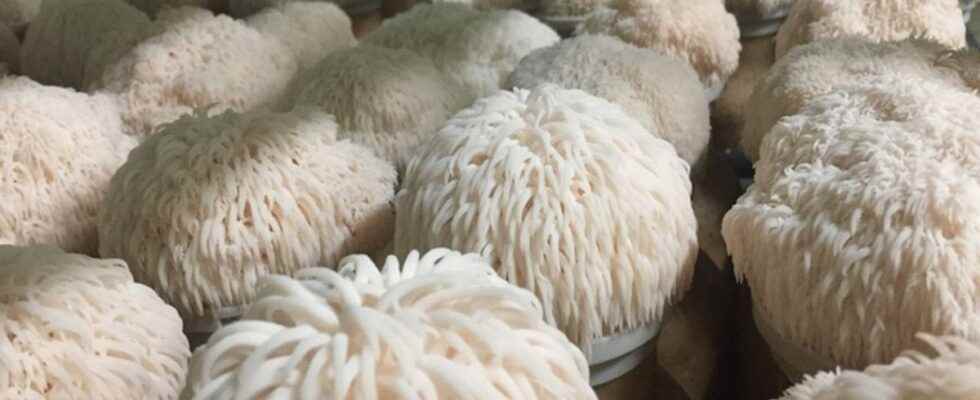Published on
Updated
Reading 1 min.
Called lion’s mane or lion’s mane, the Hericium erinaceus mushroom is an edible mushroom. According to Australian scientists, it would have the ability to improve memory by accelerating the growth of neurons.
Known since ancient times, lion’s mane mushroom was used to treat ailments and maintain health in traditional Chinese medicine. According to Australian scientists, this mushroom which bears the scientific name of Hericium erinaceus, would have the ability to significantly grow brain cells, which would have an impact on memory.
Super-resolution microscope observation
For this laboratory work, researchers at the Quennsland Brain Institute (Australia) exposed cultured brain cells to compounds isolated from Hericium erinaceus.
Objective: to observe the neurotrophic effects of the fungus on cells, thanks to super-resolution microscopy. “Surprisingly, we found that the active compounds promote neuronal projections, extending and connecting to other neurons“explains Professor Frederic Meunier, author of this study published in the Journal of Neurochemistry.
“We found that the mushroom extract and its active components significantly increase the size of growth cones, which are especially important for brain cells to sense their environment and make new connections with other neurons in the brain.“.
A therapeutic avenue against Alzheimer’s?
According to one of the co-authors of this work, Dr. Ramon Martinez-Marmol, this mushroom could represent a avenue of study for a therapeutic treatment against Alzheimer’s disease or other neurodegenerative cognitive disorders.
“Our idea was to identify bioactive compounds from natural sources that could reach the brain and regulate neuron growth, leading to improved memory formation.” However, to be able to move forward on this track, other complementary work must be carried out by scientists.
